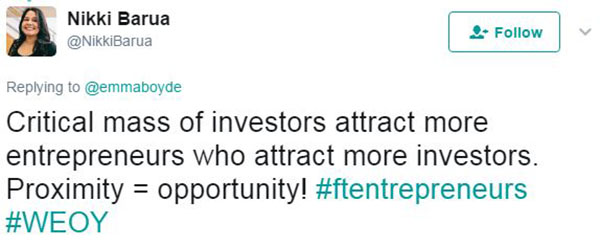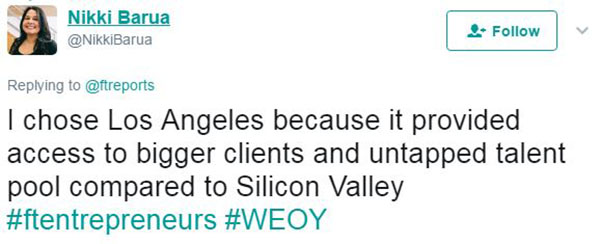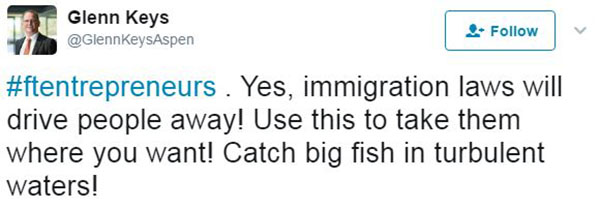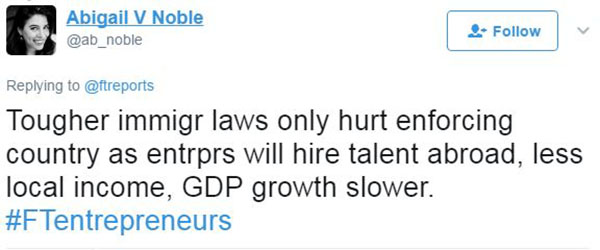It’s all about location at #ftentrepreneurs Twitter Q&A

Roula Khalaf, Editor of the FT, selects her favourite stories in this weekly newsletter.
Does it really matter where your business is located? Participants at this year’s Twitter Q&A at the World Entrepreneur of the Year award in Monaco thought the answer depended on many factors.
Nikki Barua, chief executive of BeyondCurious, which helps large companies to innovate like start-ups, is looking for three main things:

For Frank Devlyn, president of Devlyn Group, the biggest chain of opticians in Latin America, the key to success was making sure he was in the right retail location.

Proximity to capital was something that Ms Barua thought was important.

We asked if Silicon Valley had become too expensive but Ms Barua said the reason she chose Los Angeles over Silicon Valley was because large clients were there and the city offered a bigger choice of potential staff.

We also asked whether entrepreneurs running similar sorts of businesses, like fintech start-ups, should be located near to one another, as they often are in clusters. But Abigail Noble, chief executive of The ImPact, a non-profit organisation that helps families make impact investments, thought the idea very old-fashioned.

Migration was a topic. Glenn Keys, co-founder of Aspen Medical, an Australian-based company which provides healthcare in challenging environments such as Mosul, the Iraqi town recaptured from Isis, and in Sierra Leone during the recent Ebola outbreak, said he thought it might be an opportunity to attract better talent to countries such as his own native Australia.


Ms Noble thought tougher immigration laws would be more likely to have a negative effect on the countries that impose them.

Ms Barua pointed out that immigrants can be job creators in the countries they make their homes in.

For entrepreneurs that have to emigrate, she recommends new cities to call home.

Finally, Mr Keys said he had noticed an unusual phenomenon. If you want to go to a country where there are lots of other start-ups you might want to choose a country with high spending on defence.

Comments